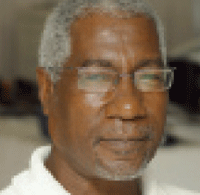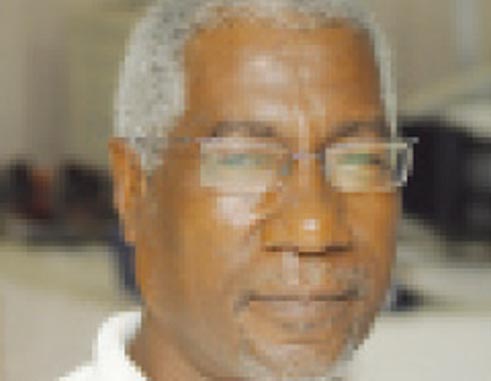
WHAT will 2016 look like? Will it be a sad or happy New Year? Will it be dirty or clean? It’s impossible to say with absolute precision what the new year will bring. But there are some things we just will not be able to escape in 2016. Like the IMPACS Report and the Juffali diplomatic matter, the Citizenship by Investment (CIP) programme – and (possible) General Elections.
I have no reason not to believe that Saint Lucia’s next Director of Public Prosecutions (DPP) will decide to give the IMPACS Report some priority at the very beginning, immediately on arrival, following his or her appointment — unlike his/her predecessor who decided not to touch it with a ten-foot pole on the eve of her departure.
Unlike those who selectively interpret the recent well-written European Union (EU) statement on the future of the IMPACS Report and the failings of the criminal justice system, I do not believe the EU will take a position on the IMPACS report that is opposite to or widely different from that of the US. I do not see the US continuing to punish us in 2016 for failing to pursue criminal justice in the cases of these 12 alleged extrajudicial killings, while the EU will be pressing us not to proceed in the name of “due process”.
I do believe that the new DPP will opt to ask for all what the old DPP opted not to ask for to take the IMPACS Report to the next logical stage and all the police officers involved will get their due chance to prove their innocence. I have no doubt that before 2016 is over the next DPP will have made up his or her mind, the witnesses involved will have been guaranteed due protection and the families of the dead men will be able to see and hear that a process was undertaken, to determine whether criminal justice was served.
Likewise the case of the Saudi billionaire with a Saint Lucian diplomatic passport who the British are now said to be asking Saint Lucia to explain (by January 8) why we should not withdraw his diplomatic passport… I can’t imagine how our Acting High Commissioner will respond, but one way or another I am sure that the matter will be legally and diplomatically addressed, but in a manner that will both observe law and conventions and respect the legal factors involved in this personal divorce matter.
My information is that the divorce settlement has already taken place in Saudi Arabia, but the ex-wife is dissatisfied with the amount she got and is therefore now seeking to use UK law to pursue her ex-husband’s riches in London. I also understand that there are complicated religious and legal matters involved, as Saudi law allows Sheikh Jufalli to have more than one wife — and he is arguing that British law does not apply in his case. Besides, experienced veteran ex-diplomats say Sheikh Juffali does not enjoy diplomatic immunity just because he holds a Saint Lucian passport.
I’m not sure how hard Britain may want to press small Saint Lucia on this rare issue of gubernatorial intervention in a case of matrimonial disharmony. It’s widely known in diplomatic circles in London that the likes of Saudi and US diplomats continuously and repeatedly flout their diplomatic immunity, with not a squeak from the Foreign and Commonwealth Office.
(What is not widely known is that the UWP Leader has allegedly been flashing ‘selfies’ taken with the Tory politician who raised the matter in the UK parliament and influenced the FCO to give Saint Lucia the January 8 deadline. What is widely known, however, is that Mr Chastanet also sent a letter to everyone with influence he may know in the whole wide world, telling them (in other words) that the Saint Lucia CIP can lead to the likes of ISIS terrorists gaining Saint Lucian passports to enter their countries and wreak havoc in 2016 like recently happened in Paris.
So, will Mr Chastanet’s letter and FCO pressure force the Saint Lucia Government to do what no other country in the world has ever done by involving itself in a complex and private divorce case involving a holder of a Saint Lucian diplomatic passport? It all depends on how far Britain and Saint Lucia are prepared to go, but I don’t think so.
Same with the CIP, which is also being linked to the Sheikh Juffali matter by the Opposition — though it isn’t not at all so linked.
The Saudi billionaire didn’t get his diplomatic passport through the CIP. My understanding is that he was appointed to a diplomatic position in London by the Saint Lucia Government to, among other things, also help link Saint Lucia with rich entrepreneurs like himself in Saudi Arabia, the Arab world and elsewhere that his multiple conglomerate tentacles can take him in the whole wide world of global finance and investment capital. It’s the kind of acceptable thing that countries do, small and large.
Similarly, CIP programmrs are not only run by hungry small countries in poor parts of the world. Many rich countries also have CIP programmes in one form or another – including Australia, Britain, Cyprus, France, Malta, New Zealand, Portugal, Spain – and the USA.
What all countries involved fear and should guard against the most is the ever-present possibility that there will always be those rich enough persons unable to enter certain countries who would want to see how best they can take advantage of such programmes, especially in small countries, to gain entry to other countries that they would not normally qualify for with their original national passports. This is something no country can prevent, which is why adequate measures must always be taken to avoid such eventualities or to trace and stop it when and if it is uncovered or discovered. But it’s rather foolish to expect or call on a government not to undertake a CIP programme – or call on external forces to force it to reverse its decision – simply on the basis of the possibility that someone, somewhere, may take advantage of it at some time.
The Caribbean has been in the CIP business from as far back as 1984.
The result of Saint Kitts and Nevis having failed to adequately police its CIP program in the 21st century is that Canada has reinstated its visa requirement for Kittitians to enter the country.
But the case of the ex-Nigeria Oil Minister and former OPEC President who also landed a Dominica diplomatic passport to do the same for Dominica as Sheikh Juffali is different. She became the subject of official corruption investigations after she had been appointed to serve Dominica when she was still legally untainted. Same with Sheikh Juffali, whose divorce case with his wife had been settled in Saudi Arabia before he was appointed to serve Saint Lucia in London. Dominica broke relations with the ex-Nigerian oil minister as soon as corruption investigations against her were announced. I have no doubt the same will apply here if similar circumstances do occur, involving Sheikh Juffali; but I don’t think the Government of Saint Lucia has any role in facilitating his ex-wife’s demand for more than she got in her first divorce case settlement.
In 2016, I have no doubt the Saint Lucia government will continue to implement its CIP as designed, taking into consideration all the lessons to be learned from others who have gone that part before us.
Back in 2006, every other Caribbean country building a new stadium for Cricket World Cup learned from Saint Lucia as the first country to complete one. Ten years later, Saint Lucia is the last (or latest) CARICOM state to launch a CIP and will also be in a position to learn from all others who went that route before. That’s the way of the world.
As for General Elections, while we all know it’s always just a bell away, we also all know that only one man in this whole wide world knows when that will be. Will he wake up one morning in 2016 and decide it’s time to ring the bell? Or has he already made his mind up and is just waiting for the right time? Will he change from his tradition of going the full circle or will he listen to Doubting Thomases urging him to beat the iron while it’s hot?
Time will tell. That’s also one of the ways of the world!














Concise, succinct-balanced.
Thanks.